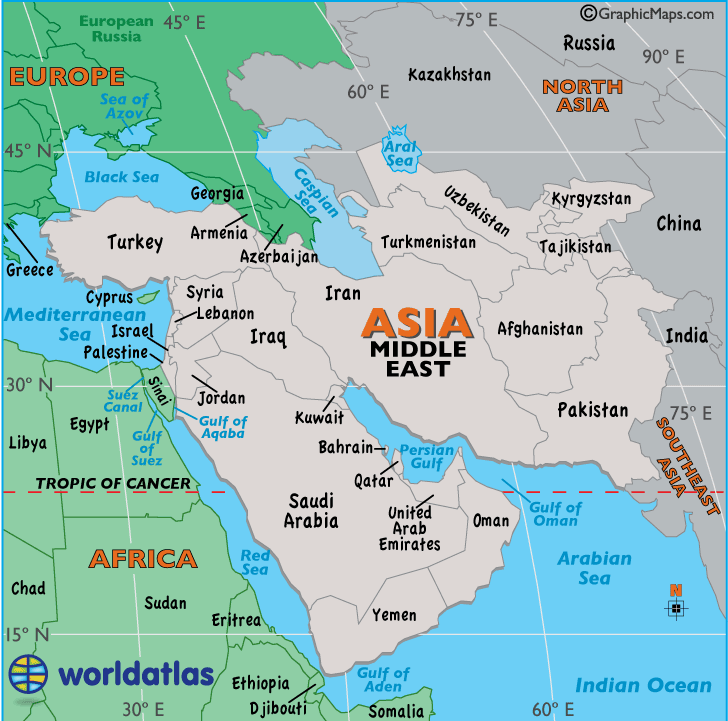By Maurizio Geri
As in elections past, this year’s campaign will come down to close margins in critical battleground states—like Florida. With that in mind, it would no doubt help these voters to know more about the foreign policy context into which the next President will be thrust. And perhaps few regions of the world are as important to our long-term security as the Middle East.
For better and for worse, there is no other part of the planet the United States has been more heavily engaged in recent years than the Arab world. The winning candidate will have to craft a new approach to the region but will be unable to do so without better understanding the region first. So pundits and voters alike should take note of a new poll by Arab News and YouGov.
This important survey, of some 3,000 Arabs from the Middle East and North Africa, offers a snapshot of opinion from the region regarding U.S. policy —past, present, and future. While in recent months the Middle East may have receded in relative importance for some American voters, rest assured that America, and America’s decisions, are closely watched in the region.
The picture that emerges is of a complex, nuanced, and informed part of the world, which confounds stereotypes—and which will challenge either candidate. (Underscoring the importance of voters acquiring as much information about the candidates, their policies, and outlooks, prior to casting a decisive ballot in a historically significant election.)
For one thing, the poll finds that over 58% of those surveyed are following our election “closely”—and this includes respondents from Morocco on the Atlantic coast of Africa to Gulf states in Asia—and a formidable 76% reporting that the next President will have a major impact on the region. The poll goes further, too, offering some goal posts that the next administration can aim for.
Asked, for example, to name the biggest policy issue for the region, some 44% named youth unemployment as their top priority! As recent events in France have no doubt underscored, youth empowerment is a major issue. Disengaged youth can become susceptible to radicalization and extremism—or flood Europe as trans-Mediterranean migrants. Or both. The same percentage of respondents listed solving the Arab-Israeli conflict as the most important task for the United States in the region.

Respondents also had a lot to say about American policy decisions that have already been made. For example, while running for president in 2016, President Trump promised to move the U.S. embassy currently located in Tel Aviv to Jerusalem. The clearest finding of the poll was that 89% of respondents saying moving the U.S. embassy to Jerusalem was a mistake.
Yet, despite this, 52% of Palestinian respondents said that the United States should stay involved in the peace process – suggesting a possible silver-lining or at least something that the next Presidential administration can build upon. (America has not yet wholly lost its status as an impartial arbiter in Middle Eastern affairs. One might, of course, ask: Does America still want that role?)
While, as above, the poll indicates disquiet with this major move by President Trump, the picture is also, as I stated earlier, more complex than that. One of Trump’s major and most contentious foreign policy decisions was the assassination of Iranian General and Revolutionary Guard Commander, Qassem Soleimani. Large percentages in countries like Iraq and Lebanon cheered this choice.
Indeed, of the total surveyed, over 50% believed President Obama left the region worse off, and hope for his successor to try a new approach. In a sign, however, of further complexity, 39% of respondents look forward to a Biden presidency, only 12% are cheering for Trump, and a whopping 49% indicated they had no opinion between the two.
What we find, then, is a region with strong opinions that simultaneously present challenges to President Trump and to Vice President Biden, indicating support for some of their stances and disagreement with some of their legacies. (A Vice President Biden is inseparable from the administration of President Obama, after all.)
As voters in Florida head to the polls to make their decision, they will have to decide which of the two indicates steadier and safer leadership in, as this poll demonstrates, complicated parts of the world, which are pushing and pulling the United States in difficult directions. These voters in Florida, too, should know that, on November 3rd, it won’t just be Americans waiting on the final results.
Maurizio Geri is a former NATO analyst and independent scholar of international relations. He is the author of Ethnic Minorities in Democratizing Muslim Countries Turkey and Indonesia. He is also an fellow with the Center for Media and Peace Initiatives which along with News Talk Florida is hosting a special event on this election to discuss that poll today 11 a.m. to noon – Click here to listen.








